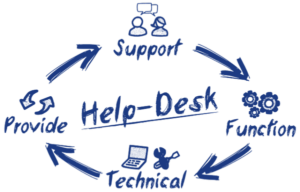Introduction
Figuring out ways to stay safer on the internet is a constant concern. There are 7 ways to make sure you and your personal information are protected.
1. Don’t Use the Same Password Everywhere
It’s very common for people to use the same password for everything since it’s easy to remember. This makes it very easy for a scammer to gain access to multiple accounts if they figure out your password for just one. You also want to make sure the password difficult to crack. Using uppercase and lowercase letters as well as special characters is one way. Also using a space in a password is very difficult for a program to guess the password when randomly trying combinations. It’s also advisable to not use identifying information in the password like your birthdate. Make sure you keep the passwords somewhere that’s safe so you don’t forget them. Writing down this information in a notebook is one way. Also using a password manager like Lastpass or Dashlane is also a great option.
2. Avoid False Promotions
It’s very unlikely that you’re going to win a free iPad or get a brand new product at a steep discount. It’s much more likely to be a phishing attack. Sometimes it’s an attempt to just gather your email to market to you. It’s sometimes the goal is to collect your credit card information and never ship the item that was purchased. The simple principle here is: If it looks too good to be genuine then it probably is. Businesses exist to make a profit. If there’s clearly no way they could be making a profit on the item they’re selling or promoting, it’s probably a scam. Stay safer on the internet by avoiding any sketchy deals.
3. Delete Suspicious Emails
Opening an email from an obscure or suspicious source isn’t safe. Opening links contained in those emails is even more dangerous. Occasionally even email addresses on your contact list will be hacked. If somebody you speak regularly has emailed with something out of character it might be best to delete it. Those emails might contain dangerous links and risky content which might exploit your personal information or computer.
4. Avoid Providing Sensitive Data
Be cautious of what sites you enter your sensitive data into. It is common knowledge not to give out your Social Security number or credit card information. There are exceptions such as banking sites or government sites which require your social security number to verify your identity. Also trusted shopping sites like Amazon will also need your credit card at some point. It is important to verify by looking at the URL that it is the site that it’s claiming to be. Mimic sites will look similar to some trusted sites but the web address will be different. Avoid giving out seemingly innocent information such as your first car or name of your first-grade teacher on social media or online quizzes. These are social engineering attacks to gain the information commonly used for security questions. With those security questions, hackers can reset your financial accounts and transfer money.
5. Antivirus
Using antivirus will prevent many malicious programs from ever getting a chance to cause you problems. Many software companies will offer you free alternatives to their paid software. However, that software will either load you up with ads or become so annoying you upgrade to the premium version. Sometimes the premium version will have additional features or protection as well which will make it even more worth it. Windows Defender shouldn’t be your first and only line of defense. A supplemental antivirus is a major way to stay safer on the internet.
6. Pay Attention to Web Addresses
Detecting a malicious mimic site can seem difficult but there are a couple of things you can do to identify them. Search for a green secure or lock in the location bar and code prefix “https://” toward the start of the URL while visiting banking sites. Make sure the site is secure before entering your credit card data or getting to your webmail. Be cautious when shopping on a site that ships things from abroad. Don’t click on links sent to you in email messages. It’s safer just to go specifically to the site itself.
7. Back Up Your Data
Backing up your personal information protects you in the event of a PC crash or power surge. Another concern is Ransomware viruses which encrypt your personal data and then requests anonymous payment in order to unlock the files. There are several ways you can back up your information. You can do your back-up manually by transferring important documents to an external hard drive. Cloud services such as Carbonite, Livedrive, and Dropbox also are a good option.
Conclusion
These are some of the best ways to protect your computer and personal information to stay safer on the internet. If fear falling victim to cybercrime, call Rush Tech Support 844-880-7874 (RUSH) for a complementary threat inspection.




